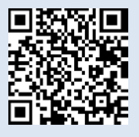Issue 8 - Perinatal Mental Health Newsletter
Catch up with the latest developments from the Perinatal Mental Health Community Service
- Publication date:
- 01 July 2022
- Date range:
- Issue 8
Newsletter
PQN Accreditation ACHIEVED!!
This accreditation review was originally scheduled to take place in March 2020 but due to the pandemic, was put on hold for several months.
The PMHCS team have worked hard during this time and with a lot of patience we have provided all the necessary documents, questionnaires, details and organising feedback sessions for the first PQN Community virtual accreditation review.
The team have demonstrated drive and commitment to the process and have provided ALL evidence in Type 1 areas which has led to our accreditation. Accreditation was awarded by the PQN Accreditation committee on 17th January 2022 and will expire on 19th April 2024.
A few little snippets from our great successes which has been provided in the multi-agency discussion summary are:
- ‘If advice is needed, the team are easily accessible and we can give them a call’
- ‘The MIMHS admin team is outstanding; they are incredibly responsive’
- ‘They have worked all through COVID-19 and worked virtually. They also went out in full PPE for women who needed face-to-face sessions and who were at higher risk’
- ‘There is a mutual respect we have with the team’
I think we can safely say that these comments truly reflect our service and how we adhere to our Trust values.
PATH Update (PerinAtal menTal Health)
PATH is part of the Interreg 2Seas programme and involves partners from the UK, the Netherlands, France and Belgium. PMHCS is part of this innovative project that promotes holistic and practical approaches to improving the understanding and recognition of mild-moderate perinatal mental illness (PMI), as well as reducing the stigma associated with this illness. The PATH project team has developed a suite of online resources to help families, healthcare professionals and employers understand PMI better, (https://path-perinatal.eu/uk/).
The PATHOR study is one amongst the series of PATH studies, the purpose is to evaluate the online resources developed by PATH in England. There are two surveys; one for Healthcare professionals and Employers http://bit.ly/WP1-2-UK and one for Mothers and Partners https://bit.ly/2P8hU39 to gain an understanding of peoples’ level of knowledge, attitudes and experiences of PMI in England. In light of the current pandemic, questions are included to assess the potential differential impact of COVID-19.
The PATH team have also teamed up with perinatal mental health advocates to produce animations based on their experience of PMI. They can be viewed in the link below:
https://path-perinatal.eu/uk/tackling-mental-health-stigma/
A Day in the Life of an Occupational Therapist at Rosewood MBU
Written by Sara Garaway (Senior Occupational Therapist)
My role as an Occupational Therapist (OT) at Rosewood Mother and Baby Unit is one that I love and get so much reward from. A typical day (although every day of the week different) involves me arriving at the ward early and developing a plan for the day with the mums.
This often includes a variety of group activities from our group programme. Our group programme is led by myself, my OT Assistant Carley, our peer support worker Tee, nursery nurses, psychologist, social worker and other MDT members.
I find that mums love having a routine, so each day we have set groups that happen and that are predictable, although sometimes we go with the flow and are flexible, adding in ad hoc activities as needed.
My favourite days are when I get to run Sensory sessions as it’s lovely to see mums and babies together in the sensory room, bonding and having some quality time together.
Other valued and important sessions are going out and about with mums in the community, whether it be to Bluewater, swimming, a coffee shop, or walk in the park.
Getting off the ward has so many benefits.
Other aspects of my day include attending handovers and other staff meetings – I love working as part of a big team with various health professionals and learning from one another. I also meet with mums individually and carry out OT assessments where we identify joint goals to work on together. These often centre around increasing confidence and skills in everyday activities of daily living, including activities with and without baby.
It’s lovely to work 1:1 with mums and build rapport and relationships. I love my role as I get to see mums’ recovery journey and witness their mental health improve and their role as a mum flourish. It’s a privilege to get to do what I do.
Digital Exclusion Project!
PMHCS are supporting a digital exclusion project, where the scheme can provide a repurposed laptop (with a 2-year warranty) to someone who needs it. A referral has to be made by a professional and the person has to meet some certain criteria, i.e. be classed as living at a certain deprivation level etc. Training on using the laptop / keeping safe online etc. is also offered by a ‘digital champion’ who can link in with our KMPT ‘IT Buddies’. There are 3,000 laptops available (KMPT have provided funding to the scheme for these) and they’ll see what the take-up is, to then consider whether to provide further funding. The project currently runs until 31st December 2022 but may be extended.
Feedback
PMHCS, Thrive & the MBU would very much appreciate your feedback regarding your contact with us.
You can do this by scanning this QR code or feedback via this link
Or if you would prefer to discuss your experiences please contact the service on 01622 722321 or speak with your care co-ordinator

If you are unable to use the QR code you can visit the following link to access our feedback survey
Or if you would prefer to discuss your experiences please contact the service on 01622 722321 or speak with your care coordinator
